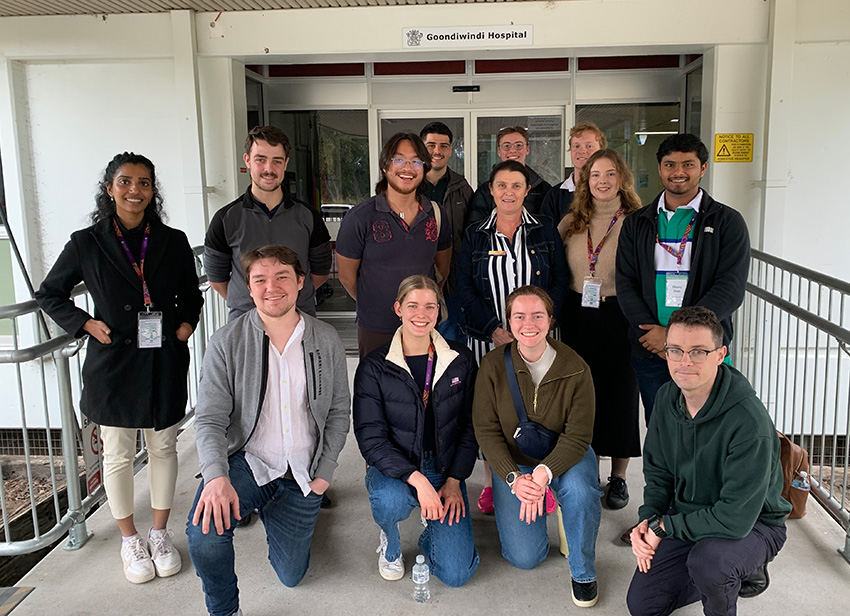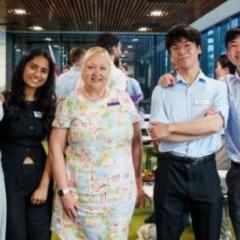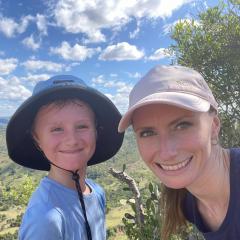Over 120 Year 1 medical students from The University of Queensland (UQ) recently returned from a four day “immersion” tour, where they experienced the charms and challenges of rural and remote living.
The Immersion Program is part of the new Doctor of Medicine curriculum, which provides Year 1 students an opportunity to learn outside of the classroom and integrate into one of nine rural and remote communities in the Central Queensland, Wide Bay, South Burnett, Darling Downs, Southern Downs, South West and West Moreton regions.
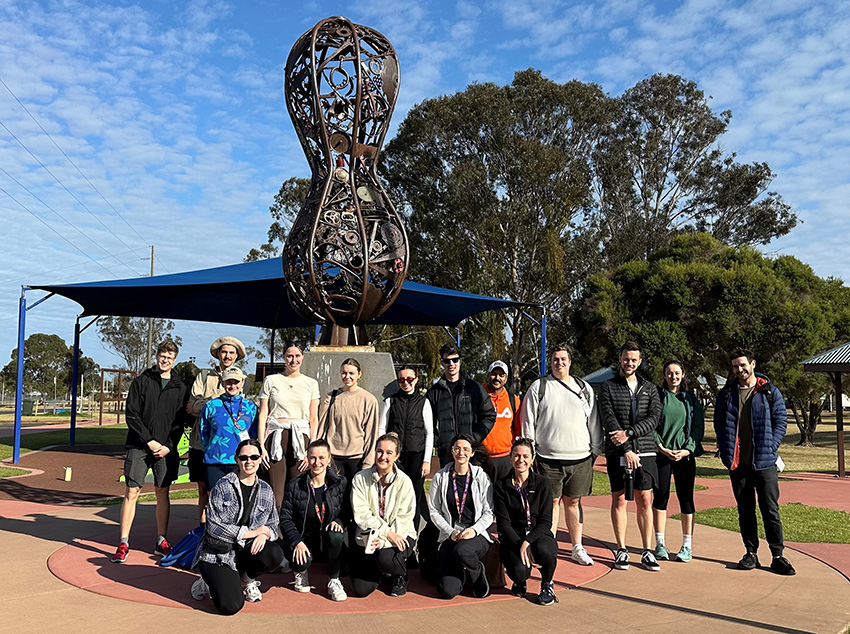
The students also partook in some local activities and connected with the community through their homestay experiences.
Mayne Academy of Rural and Remote Medicine Head, Professor Bruce Chater OAM said the Year 1 immersion was an exciting and possibly, lifechanging experience.
“This experience is about making rural medical careers visible to our students and creating engaging opportunities that spark feelings of belonging,” Professor Chater said.
“We have seen that when students have had a ‘small town’ experience, they tend to feel more comfortable when they are placed in our rural and remote locations during their ongoing studies.
“The communities have been very supportive; not only in helping arrange some fantastic tours and activities, but also in opening their homes for students to partake in homestays,” Professor Chater said.
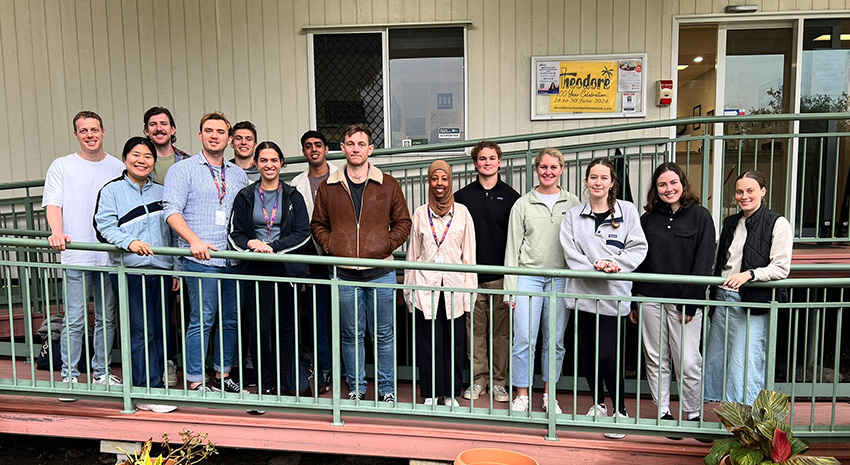
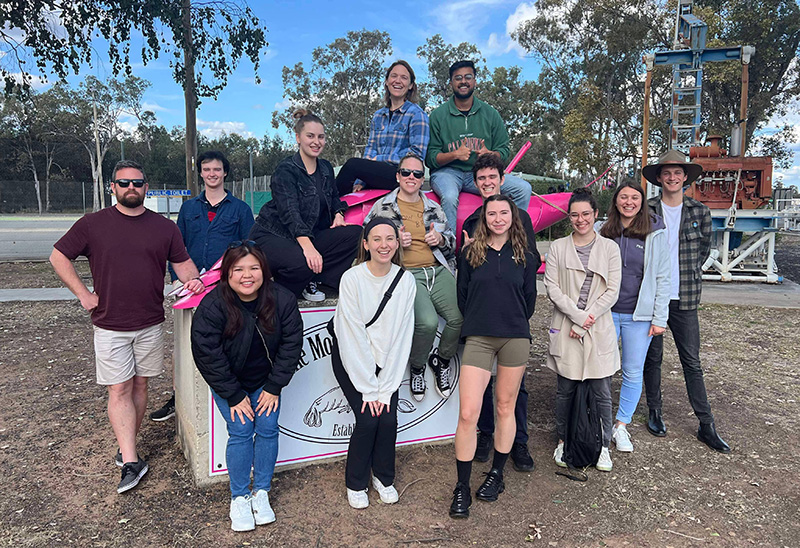
Most of our students on the immersion program will spend the remainder of their medical degree studying in Central Queensland, Wide Bay or Darling Downs South West regions thanks to The Medical Pathways.
Year 1 medical student of the Regional Medical Pathway (RMP), Caitlin Cranitch enjoyed her time in Emerald.
"Growing up in Brisbane, I’ve never had the opportunity to explore rural and remote Australia, so this immersion experience has been invaluable to shape my perception of medical practice in the country and the perks of community life,” she said.
Caitlin says she looks forward to engaging with rural communities when she returns to Rockhampton next year.
“Being able to get hands-on experience of life in the regions through the Regional Medical Pathway is an incredible opportunity and something I believe will make all of us better doctors in the future,” she said.
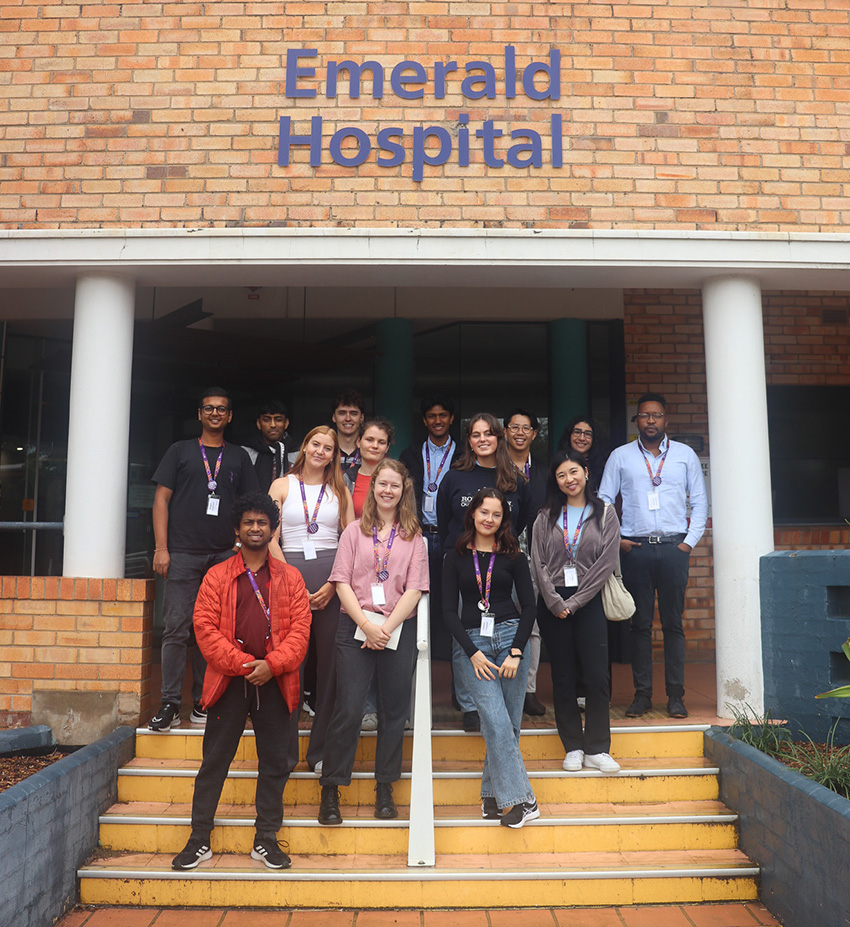
Year 1 medical student of the Darling Downs – South West Medical Pathway Genevieve King enjoyed her time in Boonah.
“I am from a rural community myself so it’s nice to return. I’ve never had anyone medical in my life so it’s really inspiring to see how much they do love their jobs in this community and it’s definitely made me think more about going rural. They seem to love the community they’re a part of and that’s a really nice thing to look up to,” she said.
Genevieve will move to Toowoomba next year for the remainder of her medical degree through the Darling Downs – Southwest Medical Pathway.
“I’ll be in Toowoomba from next year for the rest of my medicine program and that’s really exciting, I’m looking forward to going back to a more regional community,” she said.
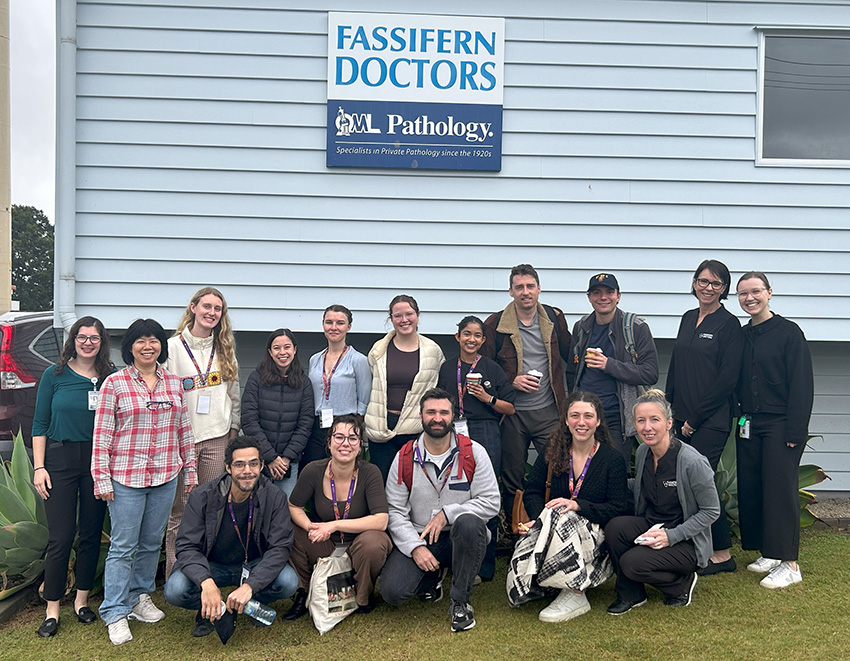
Year 1 medical student, Bramble Watson enjoyed their time in Stanthorpe.
“The Rural Immersion has been an important and meaningful experience for me.
“It’s one thing to read and research rural medicine, but nothing can beat visiting and interacting with the community firsthand.
“I have thoroughly enjoyed visiting Stanthorpe; I was already interested in pursuing rural medicine and after this, it has confirmed my feelings about what I’d like to do in future,” they said.
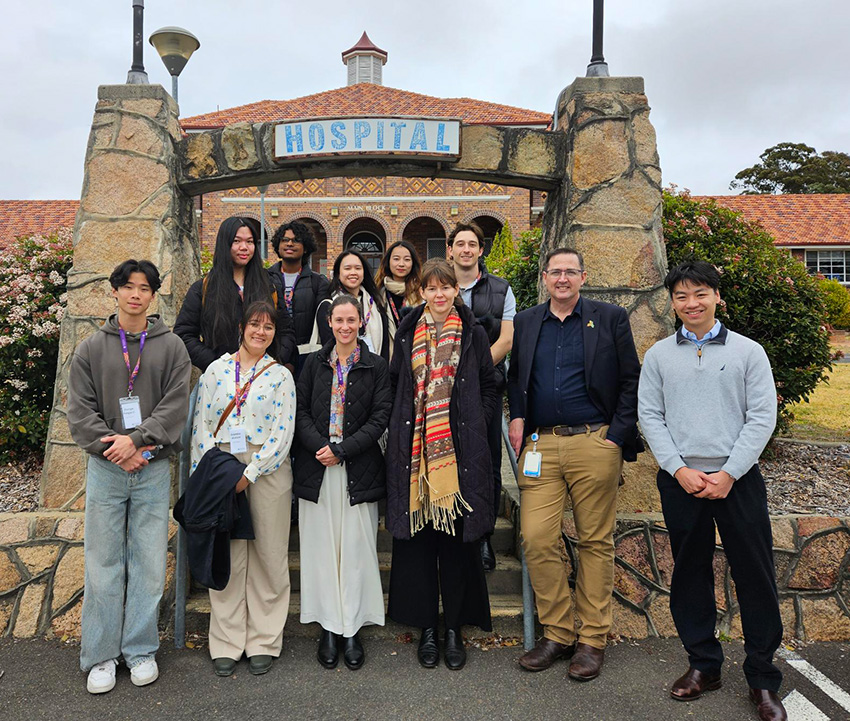
For year 1 medical student Lewis Kehl, the road to the Roma immersion was a familiar one.
“I grew up on a cattle property just outside of Roma near Wallumbilla, so it was nice to head home to experience and understand how the medical side of the community works.
“I enjoyed visiting the new hospital and meeting Lane Brookes, who gave us a picture of the indigenous history of Roma,” he said.
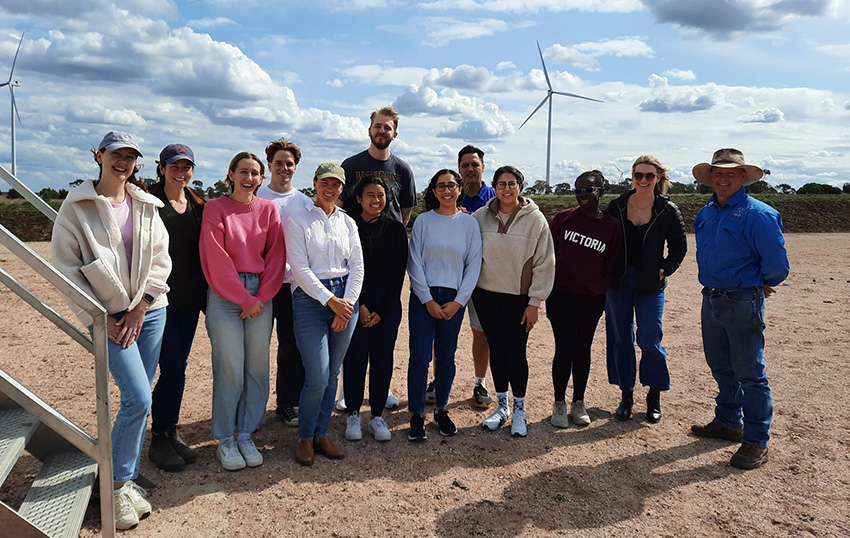
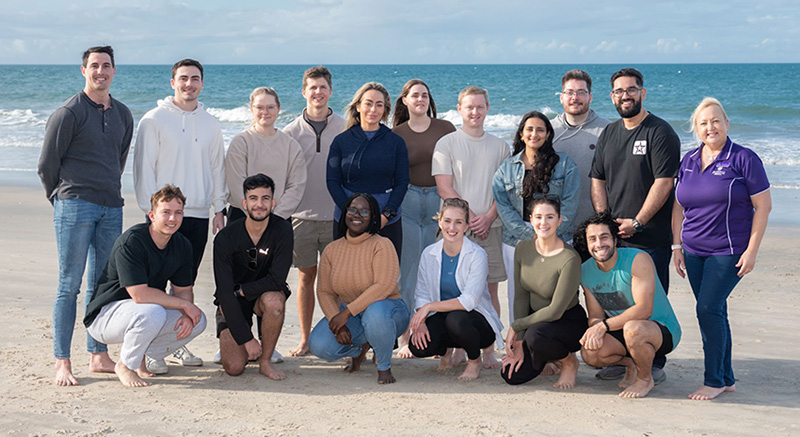
Rural Clinical School Director Associate Professor Riitta Partanen said the immersion program has grown this year off the back of the 2023 success.
“We hope that the students have gained an authentic, genuine feel about rural communities and that they have had a taste of the challenges, charms and opportunities that rural life and medicine can provide to them,” Dr Partanen said.
“They will have seen the community’s workforce needs, including that of the health industry, which will give them a broader understanding of living rurally.
“We look forward to seeing these students again, when they return to the region in 2025 to complete the final three years of their Doctor of Medicine studies as part of The Medical Pathways.”
Research shows that early introduction to rural medicine and repeat exposure to rural placements positively influences a student’s intention to enter the rural workforce.
